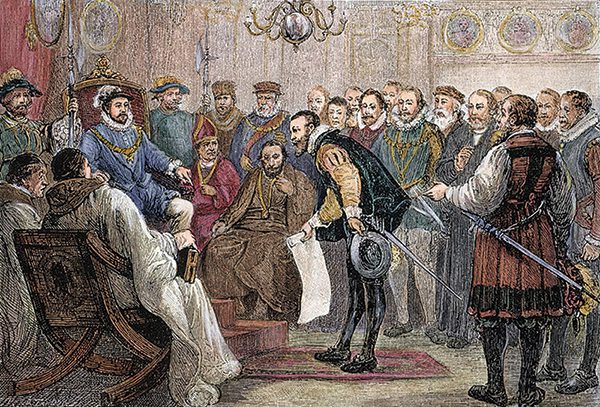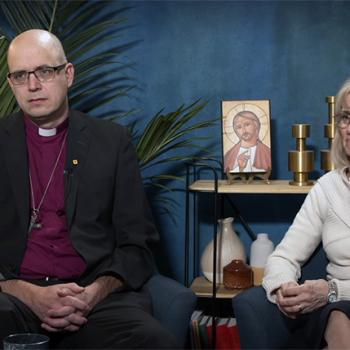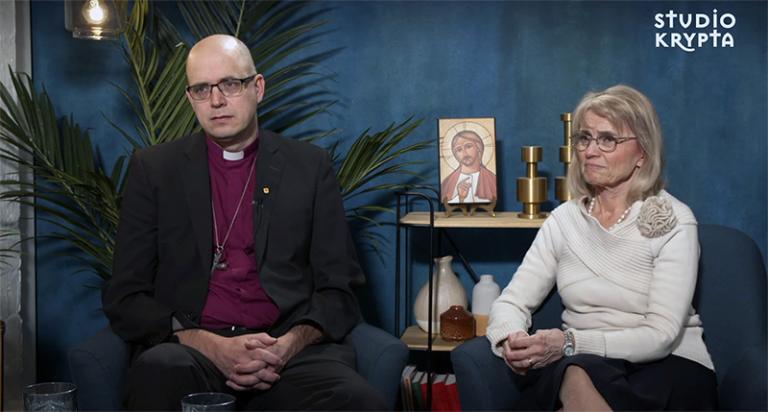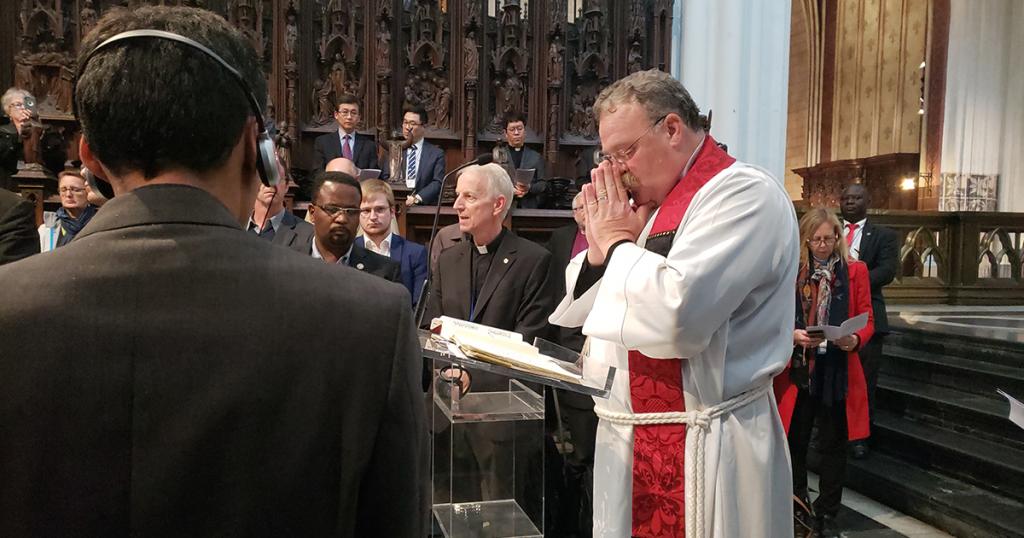“A church is like a human being,” I have often heard. “If it is not growing, it’s dying.” But is that really true? Our models and our expectations for “successful” churches tend to focus on growing in numbers. But is that realistic? If our culture is becoming increasingly secularized, the number of Christians, by definition, is going to get smaller. But Christian minorities gathered into small congregations can still function effectively as the Body of Christ. In fact, that may be the Biblical norm.
Jeremy Hoover is a Canadian minister and church planter who writes about his frustration that the Ontario congregation that he had started–while in some ways doing quite well–just was not growing. He writes about this at the Patheos blog The Evangelical Pulpit in a post entitled Church Growth.
He says he was helped by a comment from one of his members to the effect that the small group meeting together was not just “trying to start a church” but that they were “the church.” And he read a book by Stefan Paas, a Dutch church planter working in Denmark–societies even more secularized than Canada, which is even more secularized than the United States–entitled
“Pass noted that, in secularism, where choices abound and following the Christian faith is simply one choice among many,” Rev. Hoover writes, “the church will always be small.” He says that, in this context, Christians in their congregations must think of themselves as (1) pilgrims, banding together as they travel through a strange land headed towards their heavenly destination; and (2) priests, bringing God’s blessings to the world. That would include, I assume, the Gospel of Christ, Christian service, and other priestly tasks, such as prayer and intercession. “The church will always be a small band of believers, who see themselves as priests,” Rev. Hoover writes, “offering blessings to the community around them.”
Paas’s book draws on the experiences of Christians and their churches in highly-secularized Europe as he explores “Christian Mission in a Post-Christian Society.” It may well be that the far more religious United States will soon resemble today’s Europe, which is not so much atheistic but, to use Hoover’s term, “apatheistic,” being completely apathetic about religion. And yet, what Paas is describing seems to accord with what I have observed in Denmark, where he serves, and also in Finland and Australia. Namely, Christian believers of great spiritual vitality. There just is not many of them. And they gather in congregations that also demonstrate great spiritual vitality. They just tend to be very small. Nevertheless, I always find visiting these Christians and these congregations, with their dearth of “nominal” Christians, to be bracing and inspiring.
To say “the church will always be small” is not to minimize large congregations. The United States has many big churches, and these other countries have some also. These include not only “megachurches” designed around contemporary “church growth” principles, but also traditional and conservative congregations. More power to them, and may their tribe increase! Of course, we want as many people as possible to come to faith and join the church.
But most congregations are small ones, from storefront churches in the inner city to tiny congregations out in the country. And even factoring in all of the megachurches and traditional congregations and church bodies with large memberships, the aggregate number of church-going Christians in the United States is still a minority, though, at 41% a sizeable minority. About 30-35% of Americans, counting both white and black churches, can be classified as “evangelical.” About 3.5% are Lutherans, with 1.1% being Missouri Synod Lutherans (and counted among the evangelicals).
The relatively small number of Christians is not necessarily a new phenomenon. Luther, writing at a time when church membership was virtually 100%, often described the church of true believers as being small. For example, in his explanation of the church in the Large Catechism, he describes it as “a little holy group”:
I believe that there is upon earth a little holy group and congregation of pure saints, under one head, even Christ, called together by the Holy Ghost in one faith, one mind, and understanding, with manifold gifts, yet agreeing in love, without sects or schisms. (Third Article of the Creed, Large Catechism)
And the Bible also indicates that believers will not constitute a particularly large demographic. As Jesus says,
“Enter by the narrow gate. For the gate is wide and the way is easy that leads to destruction, and those who enter by it are many. For the gate is narrow and the way is hard that leads to life, and those who find it are few. (Matthew 7: 13-14)
So we shouldn’t be surprised to find our numbers to be small. We perhaps have felt entitled to being the majority in society, with an expectation that our churches should be large and full, based on historical precedent, which, however, might be misleading.
We should not be dismayed at belonging to a “little holy group.” We are, indeed, pilgrims and priests. Insofar as we are faithful, we can still be salt and light to a world that does not understand us. As the hymn says, echoing Jesus in Luke 12:32:
Have no fear, little flock;
Have no fear little flock,
For the Father has chosen
to give you the Kingdom;
Have no fear, little flock! (Lutheran Service Book, 735)
Photo from Pxfuel
















